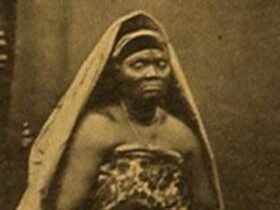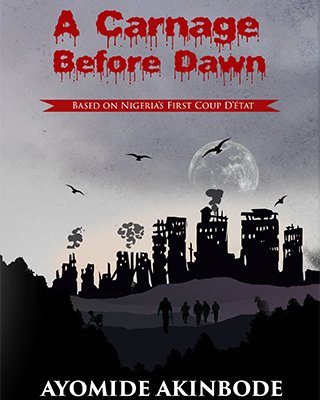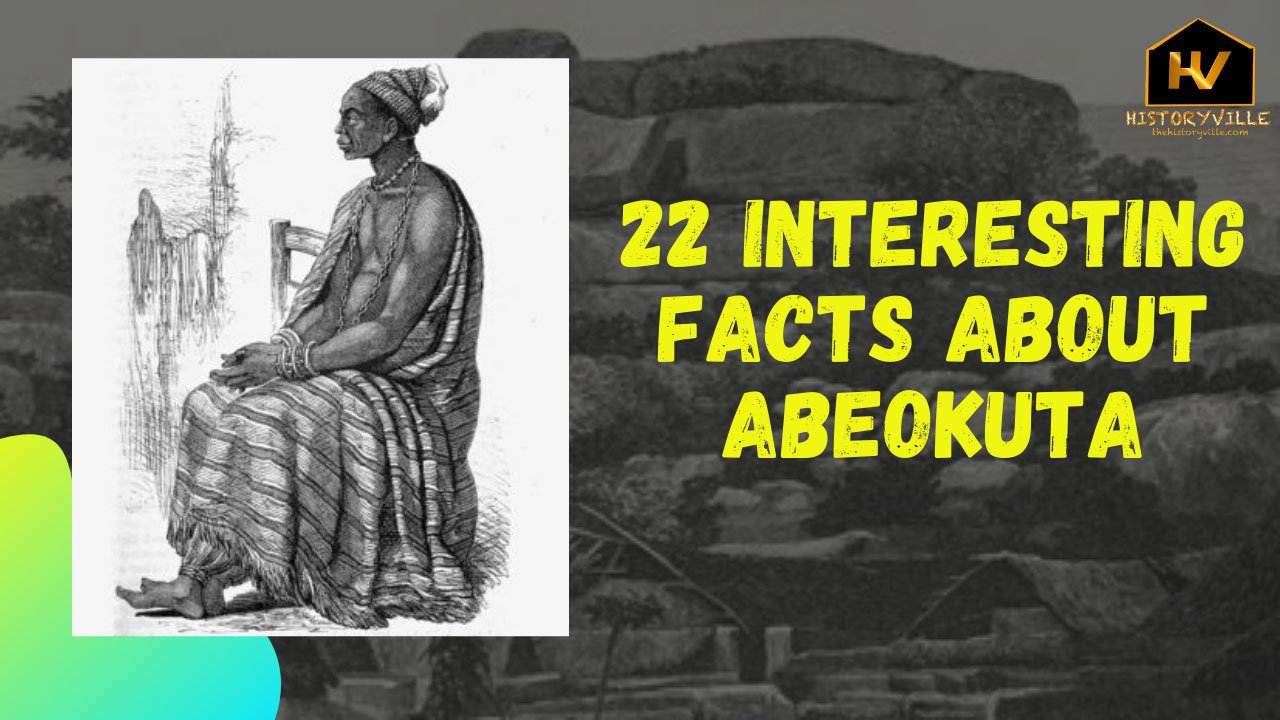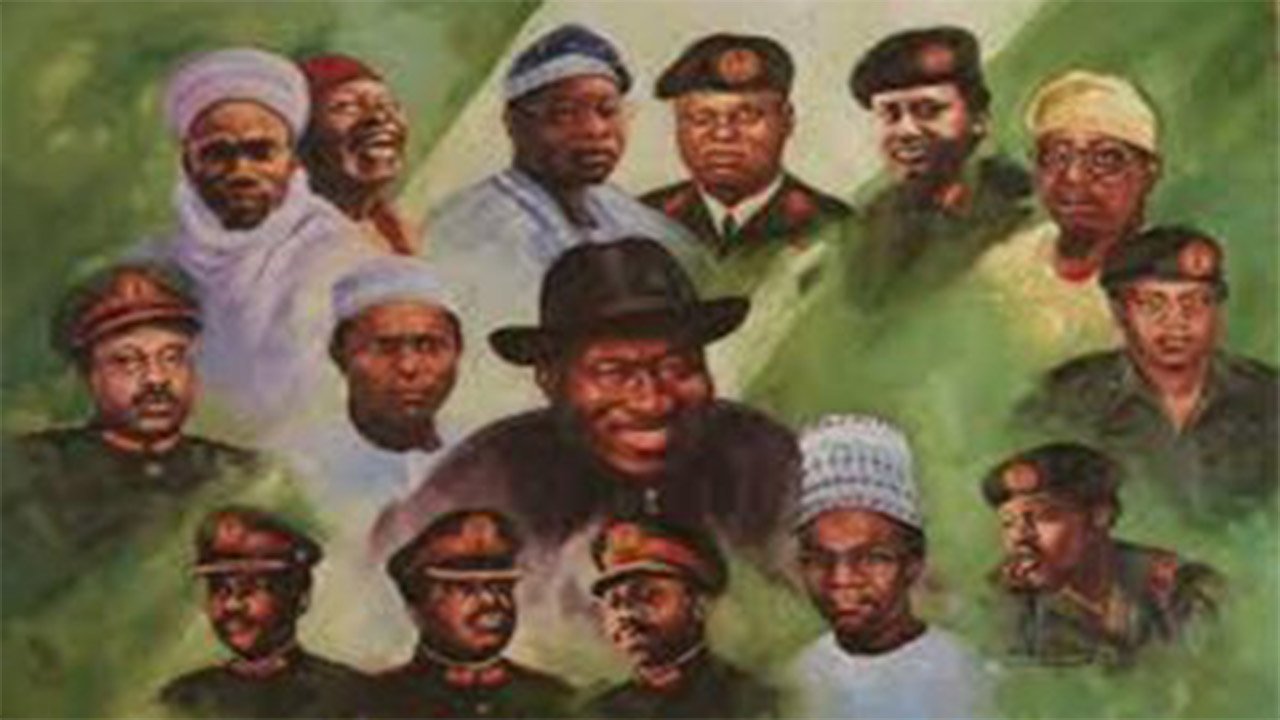No products in the cart.

Major-General Johnson Thomas Umunnakwe Aguiyi-Ironsi was Nigeria’s first in many areas; Aide-de-Camp, Head of the Nigerian Army, and Head-of-State among many. However, he would go down in history as one who took the rudders of the nation during a military coup that terminated the First Republic.
Today, 03/03 marks an important day in the life of the late General. He would have been 95 today having been born in 1924 in Umuahia-Ibeku in present-day Abia State. However, don’t let me keep you waiting. Below are some of the interesting facts you did not know about Johnson Aguiyi-Ironsi, Nigeria’s first military Head-of-State.

Early Life and Education
1. Johnson Aguiyi-Ironsi was born Thomas Umunnakwe Aguiyi-Ironsi to his father Mazi Ezeugo Aguiyi on March 3, 1924, in Umuahia-Ibeku, present-day Abia State, Nigeria. He adopted the name “Johnson” as his first name from her elder sister’s husband, Theophilus Johnson, who was a Sierra Leonean diplomat in Umuahia.
Contents
2. Aguiyi-Ironsi had his primary and secondary school educations in Umuahia and in Kano.
Career in the Nigeria Army
3. In 1942, at the age of 18, Aguiyi-Ironsi joined the Nigerian Army against the wishes of his sister, at the rank of a Private with the 7th Battalion. He got promoted in 1946 to the rank of Company Sergeant-Major. Also in 1946, he was sent on an officer training course in Staff College, Camberley, England.
4. On June 12, 1949, after completion of his course at Camberley, he was promoted Second-Lieutenant of Royal West African Frontier Force (RWAFF) and soon returned to Nigeria to serve as the Aide-de-Camp to Sir John Macpherson, Governor-General of Nigeria.
5. Aguiyi-Ironsi was promoted to Captain in 1953 and again promoted to Major in 1955. As Major, he served as Queen Elizabeth II’s equerry on her official visit to Nigeria in 1956.
6. In 1960, he became a Lieutenant-Colonel and was subsequently made commandant of the fifth battalion in Kano, Nigeria. Also, in the same year, he headed the Nigerian contingent force of the United Nations Operation in the Congo.
In 1962, he was promoted to the rank of Brigadier-General and, in 1964, he was appointed as the Grand Commandant of the entire United Nations peacekeeping forces in the Congo.
Honours
7. In 1960, the Austrian Government awarded a Gallantry medal to the general and 13 other Nigerian soldiers for their role in the Congo in freeing an Austrian ambulance unit which was arrested and imprisoned by the Congolese authorities because they claimed the unit was a company of Belgian parachutists.
8. In 1965, he was promoted to the rank of Major-General the same year the British General Officer Commanding (GOC) of the Nigerian Army, Major-General Christopher B. Welby-Everard (1909-1996) handed over his position, making Aguiyi-Ironsi the first Nigerian to head the entire Army on February 9, 1965.
Nigeria’s First Military Head-of-State
9. However, less than a year, Aguiyi-Ironsi became Nigeria’s first military Head-of-State after a brutal coup led by junior officers of the Nigerian Army on January 15, 1966. To put down the rebellion, Aguiyi-Ironsi seized power and took over as Head-of-State and Supreme Commander of the Nigerian Armed Forces.

10. Decree Number 34 of May 24, 1966, promulgated by Ironsi caused massive unrest in the Northern part of the country as the Northerners had gone against the delimiting of regional powers as far back as 1959.
The decree made the centre strong, thereby abolishing the powers granted to the regions. In June 1966, Ironsi began a tour of the country (never to return to Lagos) and met with the Northern elite, assuring them of a united Nigeria.
How did Aguiyi-Ironsi die?
11. On July 28, 1966, he was hosted by the military governor of the Western Region, Lt. Col. Francis Adekunle Fajuyi (1926-1966) in Agodi, Ibadan. As he made to leave for Lagos, Fajuyi coaxed him in spending the night in the Government House.
On the wee hours of July 29, 1966, Northern soldiers led by Major Theophilus Y. Danjuma (b. 1938) came to arrest Ironsi and questioned him about his alleged complicity in the coup which saw the demise of the Sardauna of Sokoto, Ahmadu Bello, and Prime Minister, Abubakar Tafawa Balewa.
The soldiers overpowered Fajuyi and Ironsi and violently stripped off their epaulettes. They were also beaten and rained with blows as they were dragged along to a shallow pit in Lalupon, near Ibadan, where their bodies were riddled with bullets.
Major-General Johnson Thomas Umunnakwe Aguiyi-Ironsi was 41 years, 10 months, and 13 days old when he became the Head-of-State of Nigeria on January 16, 1966. As Head-of-State, he spent 194 days in office; the shortest of any military Head-of-State.
12. Aguiyi is an Igbo word which means “crocodile”. Hence, Aguiyi-Ironsi moved about with a crocodile shaped swagger stick which many of his soldiers believed it was a charm he used to stay invulnerable and alive. The name of his swagger stick was “Charlie”.
13. Aguiyi-Ironsi is the second youngest Nigerian Head-of-State to die in office, after Murtala Muhammed, at the age of 42.
Legacy
14. During his short regime, Aguiyi-Ironsi promulgated a raft of decrees. Among them were the Constitution Suspension and Amendment Decree No.1, which suspended most articles of the Constitution (though he left intact those sections of the constitution that dealt with fundamental human rights, freedom of expression and conscience were left intact) and the Circulation of Newspaper Decree No.2 which removed the restrictions on press freedom put in place by the preceding civilian administration.
15. In 1953, Aguiyi-Ironsi got married to his wife, Victoria and one of their children, Thomas Aguiyi-Ironsi, went on to serve as Nigeria’s Defence Minister on August 30, 2006, under President Olusegun Obasanjo.
16. Major-General Johnson Thomas Umunnakwe Aguiyi-Ironsi was 41 years, 10 months, and 13 days old when he became the Head of State of Nigeria on January 16, 1966. As Head-of-State, Aguiyi-Ironsi spent 194 days in office-the shortest of any military Head-of-State.
17. As a soldier, Aguiyi-Ironsi loved alcohol so much. He was a heavy drinker and “a lover of the bottle”.
18. Aguiyi-Ironsi was a devoted Catholic and attended mass every morning, even on the day he was killed.

19. On Wednesday, March 28, 2017, the Oyo State government transformed the spot where Aguiyi-Ironsi and Fajuyi were murdered at Lalupon, into a memorial park; the Ironsi–Fajuyi Memorial Garden Park. There is a palm tree that still conceals some bullet holes and their bloodstains.
20. Aguiyi-Ironsi was a good family man and a professional soldier. He hated partisan politics as he would groan, “I asked for soldiers, I’m being given politicians dressed in uniform.” The Johnson Aguiyi-Ironsi Way, Maitama, Abuja and Johnson Aguiyi-Ironsi Tunnel in Owerri, Imo State are one of the many locations in the country named after him.
We always have more stories to tell, so make sure you are subscribed to our YouTube Channel and have pressed the bell button for interesting historical videos. You can also follow us on all our social media handles and don’t hesitate to as well share this article with your friends.
You can also get A Carnage Before Dawn, a historical account of Nigeria’s first coup d’état. E-book here. Paperback here. And on Amazon Kindle and Amazon Paperback.
1 Comment
View CommentsLeave a Reply
You must be logged in to post a comment.







Till date Nigerians has not find peace in there heart